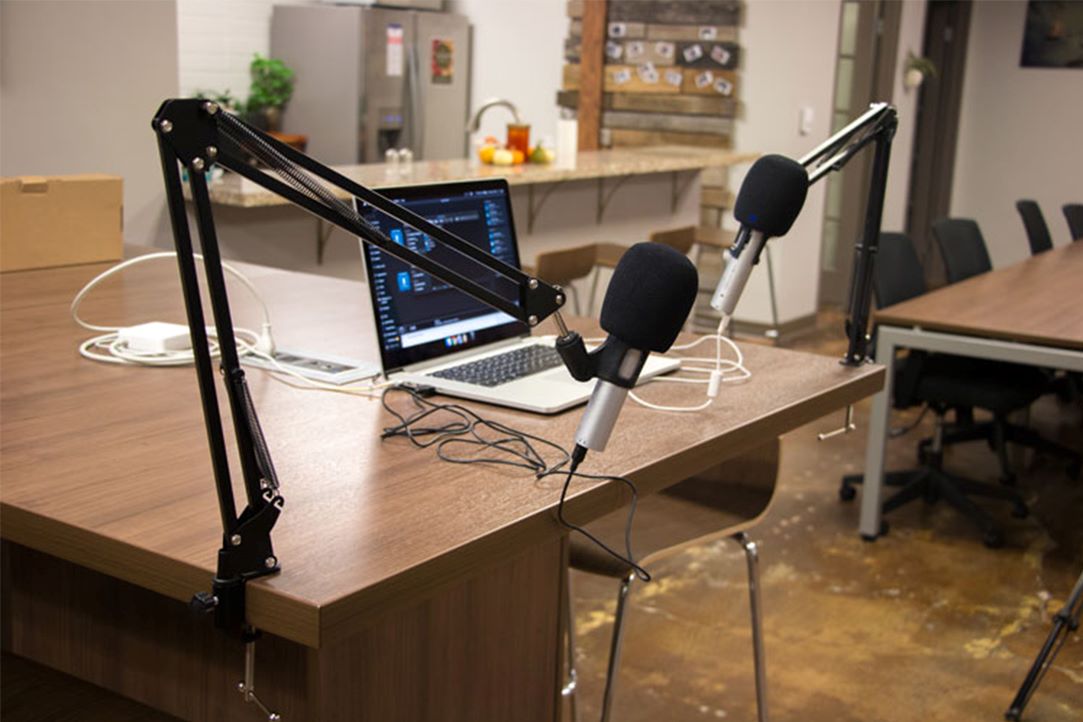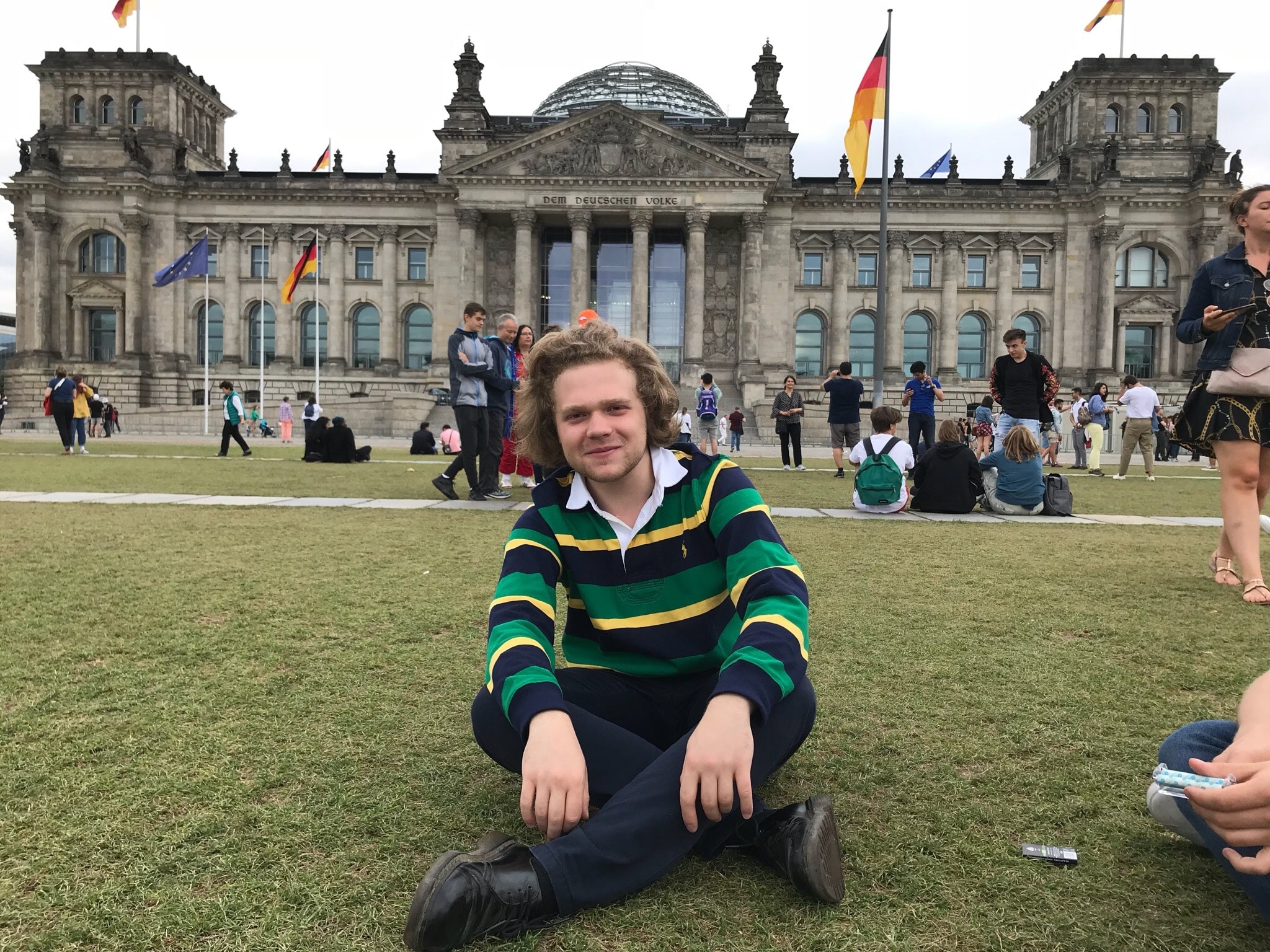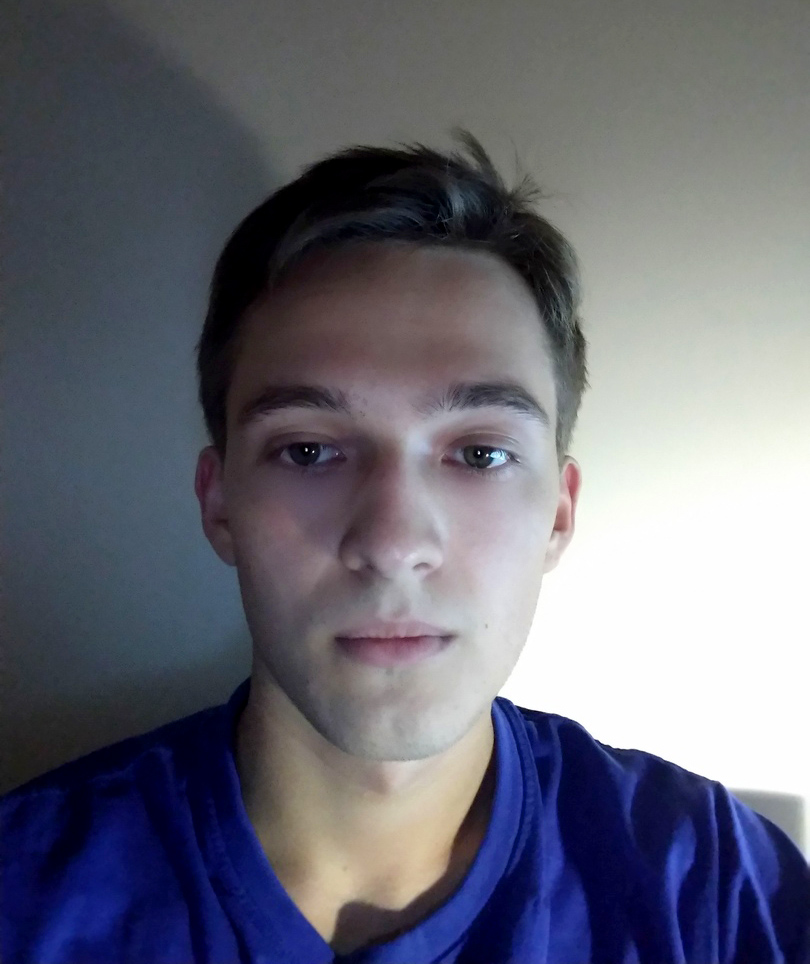Why Podcasting Is A Thing Right Now

Podcasting might be one of the most rapidly developing media spheres. Podcasts are topic-specialized episodes of speech or conversation lasting from 20 to 90 minutes. In a single episode of a podcast authors discuss a problem, invite experts and people that can be interesting to the audience. Podcasting is sometimes called «a new radio» since a listener can always choose what they want to hear about and give their feedback.
The popularity of podcasting involves more people each day. In HSE University there are numerous initiative podcasters that work hard to share their expertise with the audience. We have asked two beginner podcasters for an interview. Katya Lisova and Kirill Evdokimov are 3-rd grade students of PR & Advertising education program – last year they decided to start their own podcasting business with their coursemates. They kindly agreed to answer some of the questions that might be informative to learn about how to get into podcasting.
Katya: One day my friend interviewed one of our teachers for an article. The conversation lasted almost for two hours. When she began to transcribe it, she realized that she didn’t want to remove, reduce, adapt anything for a text format – so she just left everything as it was, all the speech and words were said so beautifully and interestingly. From this, the idea of making a podcast was born. In addition, we did not have a project at School of Integrated Communications that would be devoted entirely to teachers, but there are a lot of them, and everyone has a story to tell.
Kirill: I guess I started all this because I got cautious. We had a gracious teacher of rhetorics Marina Valerievna Libakova-Livanova on my first grade. It was impressive. She raised culture in us, and then she taught us about the culture of speech. She influenced me and my collegues so much and she taught us to love Russian language and oral speech. Also, I believe that I am not handsome, and the voice can be modified with audio effects. So, I decided to get into voice-over or podcasting. Thinking of that, I have met two people that we started podcasting with. Fedya Kabanov, more known as Theodor Kabanov, a curator, and Almar Akbari – he is a mathematician. We started an independent project – Vyshcast. It was about science and politics. We had various guests and lots of insights. The project got wider and we met Igor Antykhin who led our «Tumaniny Bulion» football podcast. It became kind of autonomous and then I started my commercial podcasting start-up – I went to different cities as a podcast producer and caster.
Kirill: No, but I always liked the communications. I was a leader in a summer camp, worked as a call-center operator when I was at school. The development of my communication skills is probably happened due to my job. I had to sell internet and telephone services to old ladies that do not really need it. Then I got some interest from the university. I had some experience in sound-design and music-making, not beatmaking, thankfully (laughs).
Katya: No, but I did some qualitative research where I used in-depth interviews. This is my favorite part: in a good, thoughtful conversation it is interesting to reveal even the most shy and modest respondent.
Kirill: I would not say that I have one podcast currently. I work on my podcasting agency «Sikos Nakos». Our, lets call it officially, laboratory of audio storytelling, has several projects. One of them is «Departament Poyasnit» podcast – I support it technically, edit and so on. I do not really participate in the actual recording process; my colleagues know more about research methods and they can conversate with the teachers about scientific topics. The goal of this podcast is to tell about communication science in an informal language. The communication science has a lot of definitions that can make the listener fall asleep easily. We try to describe the complicated thinks in a simple way.
Kirill: There a lot of people in my team – Igor Antykhin and Almar Akbari that work on Tumanny Bulion – its autonomous but it is still in a media network of Sikos Nakos. I am the voice, montage and some organizational work. Katya Lisova – voice, she is a main caster of HSE Radio because of «Sikos Nakos». She also manages the podcast and does all the translation work. Maria Chernikhovskaya – a genius voice skill that she can modify as well. She works on our partner projects. The last one was about self-love – a collaboration with Love HSE. Anya Balashova, Elif Shipi - our science editors in Department Poyasnit. And media center of HSE, because they provide the equipment for us. Now I work from home because I have all the necessary equipment at my home studio. However, HSE media center is helpful in the technical questions. Also, I have some other casters that I will not tell about because we are working on a new project concerning the serials voice-over.
Katya: There are four of us: besides me, these are Anna Balashova, Elif Shipy and Kirill Evdokimov, we are all fellow students and have been communicating for a long time. The girls were the ideological inspirers of the project. Kirill is responsible for the technical part: I would generally call him the maestro of audio podcasting.
Kirill, Katya: First, these are students of the Department of Integrated Communications. Those who want to simultaneously learn a little more about their teachers and the field in which they specialize. Of course, we hope that everyone who has anything to do with the Department will be interested in our podcast - after all, this is something very relatable, these are well-known people, the entire community. But other HSE students who want to get acquainted with communication studies, for example, we also seek to attract to our podcasts. We are planning to make a special project for our students to navigate them through the choices to be made on our education program. Some people that do not know about advertisement sphere believe that it is a simple thing with publishing pictures in social media – we seek for showing them how the promotion routine is really like.
Kirill: A lot, and a lot of motivation. A podcast can be made using only a smartphone. A simple iPhone, for example is suitable for such operations. You can go to a studio with pricy equipment and get a disgusting sound recording. It happens quite often. You need a microphone, a computer. That’s all. Also, you need to be a good talker, have a good diction and think fast. A patience – an editing process might look simply but it is quite a disturbing thing. One I have spent a week editing a one and half hour podcast.
Katya: If we assume that everything is already available in terms of technology equipment and recording space, the main thing is a good guide for conversation. Not too detailed, just a certain “skeleton" or plot, but also to think for yourself all kinds of the possible ways of development of the conversation, so that you can navigate on the spot. This is important not to leave the material superficial, but also to allow the guest to tell a little more than perhaps he had originally planned. In general, a lot depends on the guest. You can arrange an appointment with someone for a month and still not meet, but with others you can manage to organize everything in a couple of days - therefore, the time spent on one episode often varies. You need to be flexible in this aspect and try to relate to everything that happens with understanding.
Kirill: When we started our podcast, it was quite difficult to register us as a student organizations. We could receive financial assistance of 10000 roubles a year that can not be spent without certain documents. «Sikos Nakos» is autonomous and not related formally to HSE. It does not stop us to collaborate with HSE Radio, make special projects for HSE. I also register «HD HSE» – «HSE Dance». It was easy because we had 80 participants and it was measurable. Podcasts are innovative and not so easy to measure, so it is not certain what to expect from it. Although, it gives freedom to create new things.
Katya: As for podcasting, HSE already has two studios, and if you do not need additional funds, then this is just happiness. In our case, so far, we have not sought the help of the university. However, there are also many opportunities - for example, there is always a Student Initiative Support Centre. However, this is a story for a separate article.
Kirill: They always stay behind the scenes. For example, first episode of «Departament Poyasnit» included 4 people, with 2 being the teacher guests. We had only 3 microphones for 4 speakers, because the guests could record in the same day, the same time.
Katya: We have been recording our first podcast for almost two hours. We started at noon, and only at the end we have noticed that it was already deep evening and only the light left behind the wheelhouse illuminated us. I believe that it is necessary to devote we to such jobs and projects, that make time fly by and make you happy by the end of the day.
Katya: Firstly, this is a good chance to get to know your teachers better. Secondly, of course, each podcast will be devoted to a specific topic, so you can easily find something that is most useful for you personally.
Kirill: Besides listeners, it is also useful for my team, because we practice speech, learn editing techniques and shortcuts. We try to provide unique and unheard information to our listeners.
Kirill: I believe that «Sikos Nakos» will become a big organization that makes advertisement and podcasts. I have already made commercial podcasts, but we didn’t receive much money. I want it to become it a creative agency that would allow companies to share their activity to wider audience. I want it to serve for edutainment and become a profitable business for me and my team.
Katya: I don’t want to guess, but I hope that I will continue to develop in this area even after university - but rather, as a hobby, something “for the soul”.
Kirill: We have big plans, we want to adapt our content to make it more engaging. Our project suffer from the pandemics. We plan to collaborate with other organisations and I believe that we will floursih because we do what we are interested in. Our work finds valuable feedback – this is what motivates us to move forward.
Katya: The Department has always had a lot of invited teachers - I think that sooner or later we will also start making podcasts with them. And for sure we will take a closer look at our future professional sphere!
Podcasting is definitely a new wave, and we hope that we motivated you to consider podcasts as a thing to do if you have something to say to the World. Or, at least, listen to some podcast and find your to-go caster. Begin with the discussed ones and see that it is possible to create high quality content having only a strong will and motivation.
Text by


